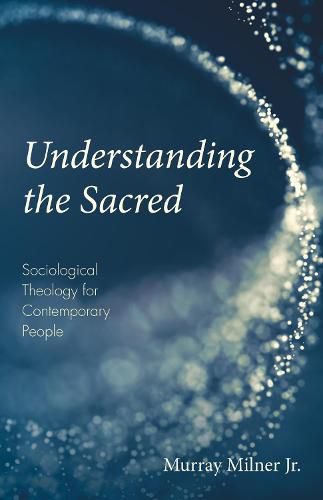Readings Newsletter
Become a Readings Member to make your shopping experience even easier.
Sign in or sign up for free!
You’re not far away from qualifying for FREE standard shipping within Australia
You’ve qualified for FREE standard shipping within Australia
The cart is loading…






This title is printed to order. This book may have been self-published. If so, we cannot guarantee the quality of the content. In the main most books will have gone through the editing process however some may not. We therefore suggest that you be aware of this before ordering this book. If in doubt check either the author or publisher’s details as we are unable to accept any returns unless they are faulty. Please contact us if you have any questions.
In the United States and Europe, membership and participation in Christian churches have steadily declined. When asked for their religious preference, increasing numbers say none. This is especially the case for younger adults and the well-educated. A key reason is that many find the prayers, creeds, and liturgy–and the theology that underlie these–to be incomprehensible or unbelievable. But theology need not be unbelievable, and doctrine need not be doctrinaire. This book provides a new approach to theology by drawing on sociological concepts that most people will find familiar–for example, role, social relationship, pluralism, hierarchy, and status. At the core of this theology is the concept of sacredness. What is especially new is to see sacredness as the ultimate form of status, that which is most praised and valued. Since virtually everyone is familiar with a variety of status systems–at work, in schools, while shopping, in church–this approach makes theology more understandable and meaningful. Yet we should not abandon the accomplishments of the spiritual and intellectual past. Hence, such classical doctrines as sin, the Trinity, revelation, atonement, salvation and grace, the nature of the church, and worship, are reinterpreted so that they are credible and meaningful to contemporary people. Any moderately educated person will find this book accessible. It is deliberately a brief book that will inform and stimulate laity, be helpful to clergy, and challenge scholars.
$9.00 standard shipping within Australia
FREE standard shipping within Australia for orders over $100.00
Express & International shipping calculated at checkout
This title is printed to order. This book may have been self-published. If so, we cannot guarantee the quality of the content. In the main most books will have gone through the editing process however some may not. We therefore suggest that you be aware of this before ordering this book. If in doubt check either the author or publisher’s details as we are unable to accept any returns unless they are faulty. Please contact us if you have any questions.
In the United States and Europe, membership and participation in Christian churches have steadily declined. When asked for their religious preference, increasing numbers say none. This is especially the case for younger adults and the well-educated. A key reason is that many find the prayers, creeds, and liturgy–and the theology that underlie these–to be incomprehensible or unbelievable. But theology need not be unbelievable, and doctrine need not be doctrinaire. This book provides a new approach to theology by drawing on sociological concepts that most people will find familiar–for example, role, social relationship, pluralism, hierarchy, and status. At the core of this theology is the concept of sacredness. What is especially new is to see sacredness as the ultimate form of status, that which is most praised and valued. Since virtually everyone is familiar with a variety of status systems–at work, in schools, while shopping, in church–this approach makes theology more understandable and meaningful. Yet we should not abandon the accomplishments of the spiritual and intellectual past. Hence, such classical doctrines as sin, the Trinity, revelation, atonement, salvation and grace, the nature of the church, and worship, are reinterpreted so that they are credible and meaningful to contemporary people. Any moderately educated person will find this book accessible. It is deliberately a brief book that will inform and stimulate laity, be helpful to clergy, and challenge scholars.